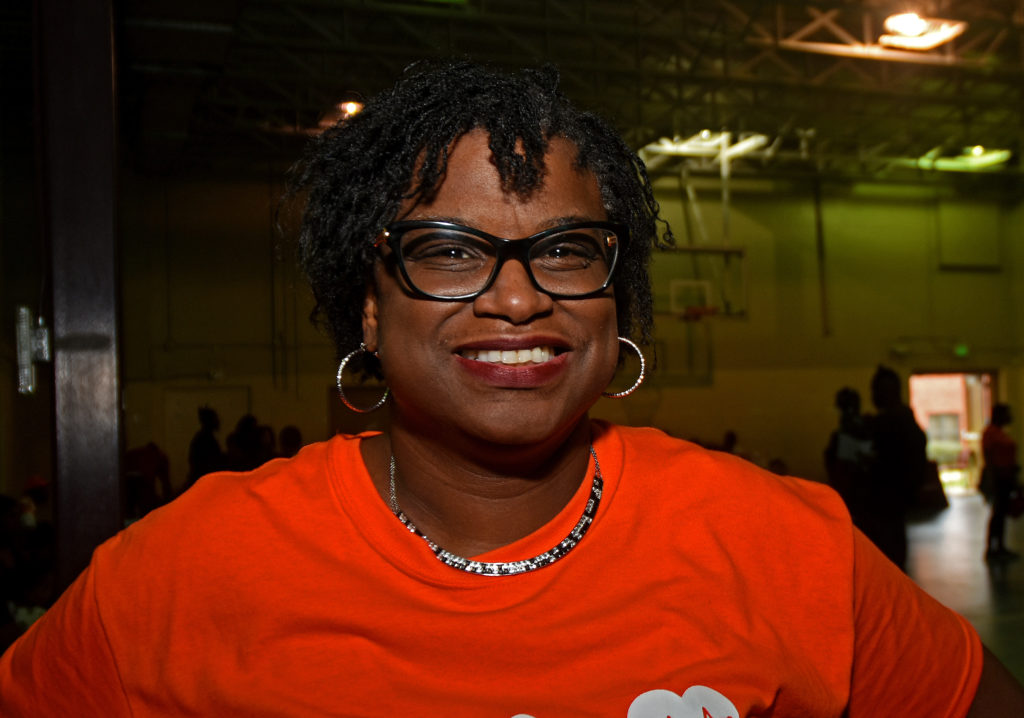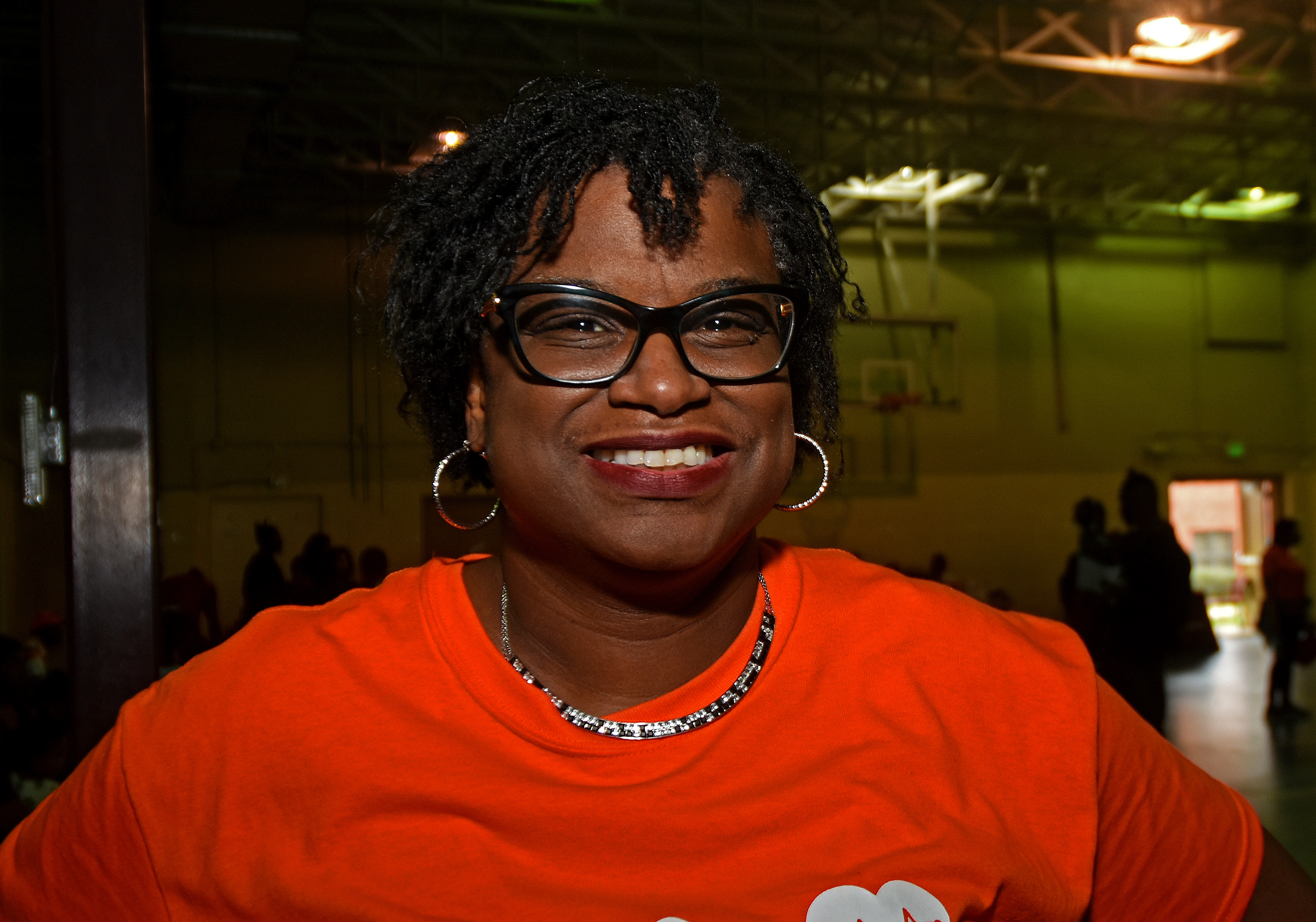By Solomon Crenshaw Jr.
For The Birmingham Times

As project manager of the Birmingham Violence Reduction Initiative (BVRI), Jarralynne Agee can relate to some of the issues she faces on a daily basis.
The 47-year-old is a product of the same kind of tough, inner-city streets where violent crime is so often associated.
Agee grew up in West Dayton, Ohio, with her father, mother, older sister and younger brother until she was 17. She equates West Dayton to some parts of Birmingham which she says have a reputation of violence.
“I lived in a set of apartments called Parkside Homes,” she said. “It has since been demolished but it was notoriously violent. That was not the safest part of town.
“(Violence) was a way of life back then,” Agee recalled. “I was telling my sons I identify with some of these areas and families that want something different for themselves and their children. That’s something I wanted for myself when I was growing up. I think about that a lot.”
It’s on the minds of many here as Agee, city officials and residents have seen a spike in violence in the city. The shooting deaths of two Wenonah High School students within a week of one another have shed a light of the situation and have many looking for ways to reduce violence.
According to data from the Birmingham Police Department, there have been 16 homicides in Birmingham this month through Feb. 14, compared to 13 at the same point in 2016. Additionally, 2017 felony assaults year to date total 71, up from 63 for the same period in 2016.
BVRI is a network that includes a private-public partnership of the business community, the Community Foundation of Greater Birmingham, social services partners, the University of Alabama at Birmingham and law enforcement.
Growing up, it was not uncommon for Agee to hear the sound of gunshots shatter the evening silence or echo into the light of the day. It was a place where people were “infected” by violence or constantly exposed to it, she said.
A different course
But from those streets, Agee emerged to earn a bachelor’s degree from Fisk University, a masters from The Ohio State University and a doctorate degree in clinical psychology with an emphasis on cross cultural psychology from the California School of Professional Psychology.
What set Agee on a different course from others raised in West Dayton’s Parkside Homes?
Karen Ross Fletcher, her mother.
“My mother used to always say to us, ‘This is a life, it’s not our life,’ the BVRI manager said. “Even though we were exposed to poverty, exposed to violence, we didn’t feel like that’s all that we were or all that we could be.
“It wasn’t our life, it was how we were living,” she continued. “We had to get good grades. That was nonnegotiable. We had to go to college, out of the city. That was nonnegotiable.”
Agee remembers growing up with girls who danced to Shirley Murdock’s ‘As We Lay.’ Her mother wouldn’t let her dance to that music.
“I was like, ‘My mom is square. She doesn’t know what’s hip,’” Agee said. “But she was like, ‘Just because we live here, we don’t have to act like we don’t know any better.’ There were things we just were not allowed to do. I was more afraid of my momma than I was afraid of the street.”
And the street respected her mom. Agee recalled being stopped by young men on her way to a store because she would have to cross “their” corner. Mrs. Fletcher wouldn’t stand for that.
“My mom drove me back and she told them to get off the corner or she would tell their mothers,” Agee said. “They left and I was able to walk where I needed to walk. I don’t know if that’s the case any more for people.”
Agee currently lives in unincorporated Shelby County with her husband of 20 years and their two teenage sons.
She had been a stay-at-home mom before Birmingham Mayor William Bell appointed her to her current job in July. It is the only job offer she says she would have accepted.
“I really believe in what we can do for the city,” she said of the quest to reduce violence. “If that happens to one of our sons, it happens to all of our sons. We all identify with the pain and the loss, not only of the people who’ve been shot but the people who lose their lives because they’ve been shooters.”





